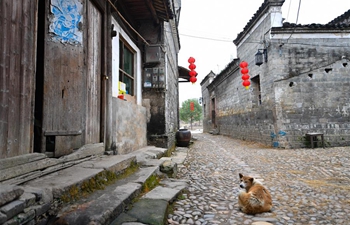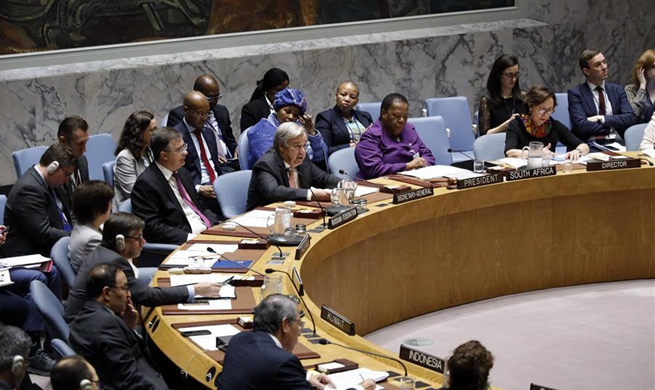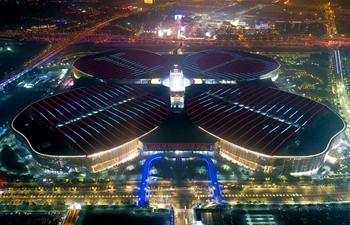by Xinhua writer Jiang Li
BEIJING, Oct. 30 (Xinhua) -- For the past fortnight, British Prime Minister Boris Johnson may have experienced both "the best of times" and "the worst of times."
Efforts to lead Britain out of the European Union (EU) seem to be on a hamster wheel now. With one Brexit deadline missed came another one. And the leader of Labour Party Jeremy Corbyn said on Tuesday that he backs a December election if the no-deal Brexit is off the table. It seems that Johnson is getting in his hands both what he detests and desires at the same time.
More than three years after the 2016 referendum that voted Britain out of the EU, it is still unclear when or how the Anglo-Celtic Isles would leave. Both the camps of leavers and remainers are losing patience and the country seems to be losing direction. Some protesters took to the streets to demand a second vote.
The sentiment to leave the EU has been historical in the island nation. It involves complicated social and economic roots, including migrant problems, terrorist attacks, currency exchange rates, and the balance of interest between Britain and the Continental Europe. The 2016 vote is not the first such plebiscite. The British also held a similar Brexit referendum in 1975. Only at that time they voted to stay.
The next three months are expected to see more inside baseball between the two British political parties. However, the side effects of Brexit have been inescapably sure: a more divided Britain and an increasingly uncertain Europe.
Perhaps it is time for the Brits to revisit their decision made more than three years ago, and ask themselves a hard question: can such a so-called democratic method as a referendum truly reflect the public will or just transient voices from "The Crowd?"
Alexis de Tocqueville, a French diplomat, political scientist and historian, once warned of the tyranny of the majority in his book "Democracy in America." And in his book "The Crowd: A Study of the Popular Mind," French psychologist Gustave Le Bon wrote that "civilisations as yet have only been created and directed by a small intellectual aristocracy, never by crowds. Crowds are only powerful for destruction."
Western democratic political theory teaches that an elected government is responsible for making the best rational decision for the voters on questions of such huge magnitude as Brexit.
However, British politicians have not only failed to do their job, but also tossed the conundrum back to the public. Moreover, instead of serving the interests of the British public, they have attempted to turn Brexit into a contest for partisan interests.
To decide for a country its future path of development is definitely not as simple as the tricks like "rock, paper, scissors." It requires utmost prudence, broad-based public debates, as well as rational analysis and judgement by those holding public offices. A yes-and-no vote may be an option to get some clues of public opinion, yet is far from the whole picture.
If a popularly elected government like the one in London has lost its ability to find a viable path to reflect the true aspirations of the general public and guarantee their legitimate rights, then so-called Western democracy is in actual regression.
The chaotic and uncivil Brexit journey also serves as a reminder that all political systems have room for reforms owning to changing domestic and international circumstances, and that no single political pattern that fits one country well can be transplanted in its entirety to other places without considering local conditions.
The Brexit ship will continue to navigate in uncharted waters. Politicians in London must strike a balance between leading public opinion and following it. But first, they need to find out where true public consensus lies.












